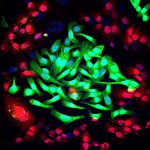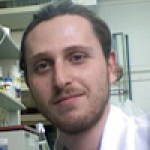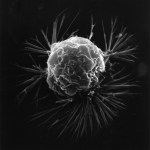growth factor receptor
What is a breakthrough in cancer research? It is a new piece of a puzzle made up of a million pieces. It may, however, be a piece that allows a picture to start emerging – one that lets us see the shape of the next piece needed to fill in more of the puzzle, or start making changes to rearrange the picture from one of cancerous growth to one of normalcy.
The Institute’s Prof. Yosef Yarden’s recent research provides a vital piece for the puzzle of resistance – how cancer cells, especially those in recurring cancers, stop responding to chemotherapy. His answer is specific to a kind of lung…
Dr. Gabriele D'Uva is finishing up his postdoctoral research at the Weizmann Institute. Here is his account of three years of highly successful research on regenerating heart cells after injury. Among other things, it is the story of the way that different ideas from vastly different research areas can, over the dinner table or in casual conversation, provide the inspiration for outstanding research:
Three years ago, when I joined the lab of Prof. Eldad Tzahor, the emerging field of cardiac regeneration was totally obscure to me. My scientific track at that time was mainly focused on normal…
New research at the Institute may offer a sliver of hope for treating “triple-negative” breast cancer. “Triple-negative” refers to the fact that the breast cancer cells are missing the three different receptors targeted by the currently available drugs, for instance Herceptin and steroid hormone blockers. This type of cancer also tends to be fairly aggressive, and the risk of early recurrence is higher than for other types of breast cancer.
Triple-negative breast cancer cells do have other receptors – particularly EGFR, a growth factor receptor that would seem to be a good target for…


